The man who created a tiny country he can no longer enter
- Published
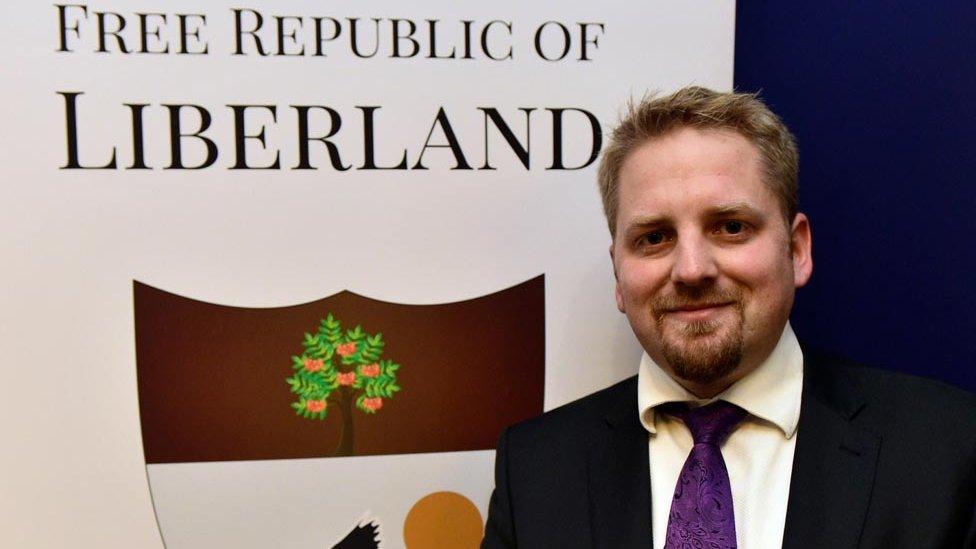
One man is trying to create a utopia on what he says is unclaimed land between Serbia and Croatia. He's banned from setting foot in his would-be territory, but he has not given up.
The president stared across the water at his country, from which he is exiled.
We were in a boat on the Danube, only a few yards from the territory of Liberland - what he calls the "beloved country".
But we knew that if we tried to disembark, the Croatian river police would arrest us. Patriotism struggled with prudence, and lost.
Liberland is only 7 sq km (2.5 sq miles) of uninhabited marshland. But in the mind of Vit Jedlicka, its first president, it's the fulfilment of the libertarian dream - a land with no compulsory taxes, no gun control, with Bitcoins as currency.
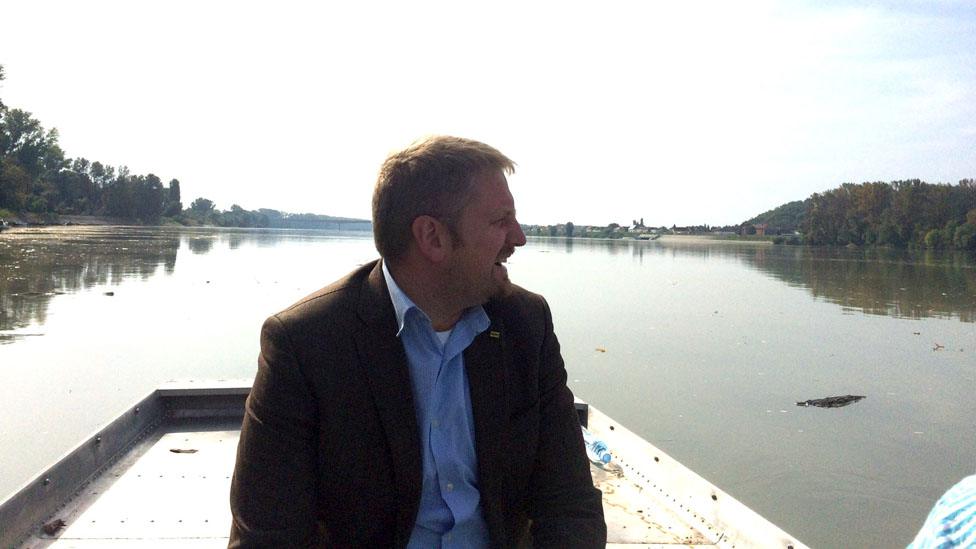
Vit Jedlicka gazing at Liberland on the right hand shore
In the summer of 2015, he, his girlfriend and a couple of mates planted a flag there. The other three elected him president.
Since then, he has signed up nearly half a million would-be citizens online. He has appointed a cabinet and ambassadors-in-waiting worldwide. He has money from crowdfunding and wealthy libertarian donors. He has printed diplomatic passports.
Just one problem - neither he nor anyone else has been able to occupy Liberland for over a year.
In 2015 Liberland seemed to be a rare example of what the law calls terra nullius - land claimed by no state. It was once part of Serbia, but when the borders were redrawn at the end of the Yugoslav civil war in the 1990s, it ended up with Croatia.
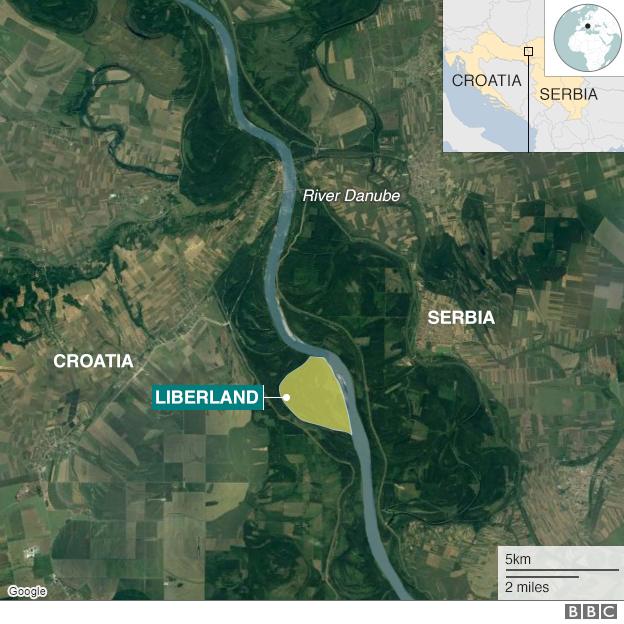
But Croatia didn't want it. If it had accepted it, it would have had to accept the new borders, which gave it less territory than it used to have. Serbia liked the new borders because it got more territory, even though it had lost Liberland.
So, for different reasons, both countries said "no thanks" to this tiny sliver. But 32-year-old Jedlicka - a friendly and approachable Czech-born former PR man, who tends to end his sentences with a slight giggle - said "yes please".
From across the globe, libertarian idealists flocked to the Balkans to settle the new paradise.
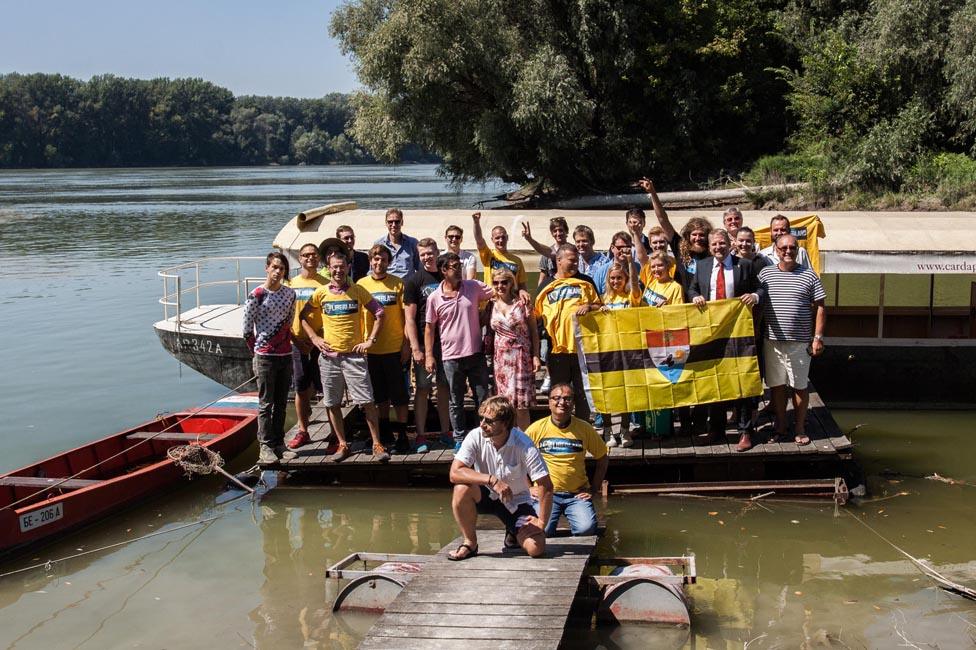
But while Croatia may not have wanted the territory, it didn't necessarily want a gun-toting libertarian utopia on its doorstep either.
It arrested and fined anyone who tried to enter, either by land or water. The president himself was arrested and fined when he tried to cross into Liberland from Croatia. In a further blow, this summer he was prevented even from entering Croatia.
But he's not a man to give up. He's kept up a busy international schedule, visiting libertarian conferences around the world, appointing a slate of ministers and foreign representatives, and keeping Liberland alive on social media.
He ran an architectural competition for Liberland, which attracted entries from some top firms worldwide.
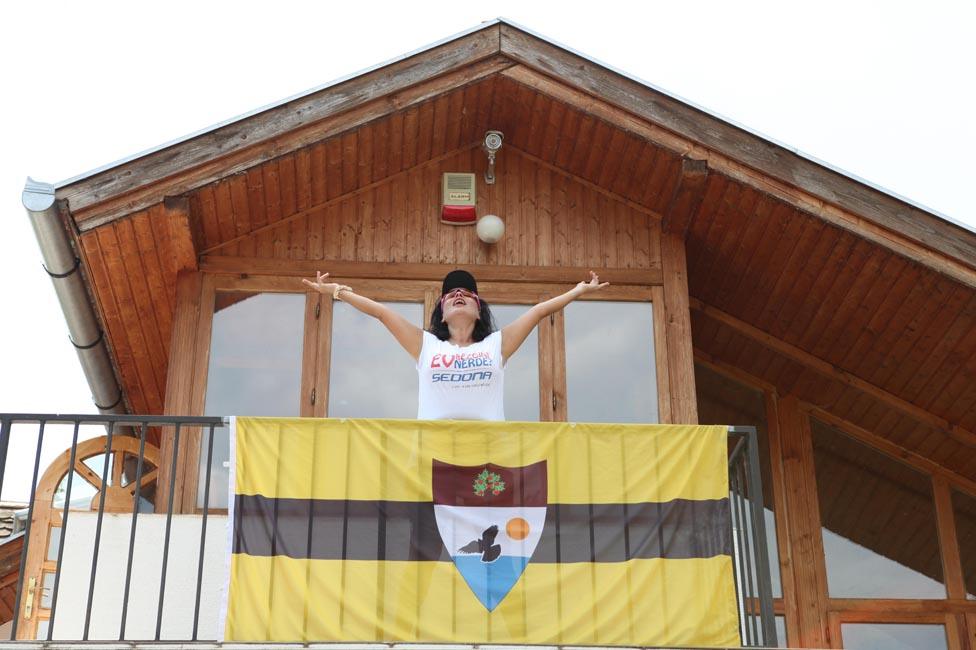
So in September, I flew to Budapest, where the president and his foreign minister, Jose Miguel Maschietto, picked me up in a hired car.
The two men were nervous - would we even get over the border into Croatia? But we sneaked in, late at night, at a small crossing. Jedlicka announced himself not as a visiting head of state, but as a tourist.
The president had two engagements. He had an invitation to attend a regional macro-economic conference, and he was appealing against his conviction for entering Liberland illegally.
Attending the conference was an attempt to shore up his bona fides as a legitimate representative of a real state, and to hand out glossy brochures to European bureaucrats. He and the other Liberlanders genuinely believe that a free-market haven in the middle of the Balkans could help regenerate an economically depressed area.
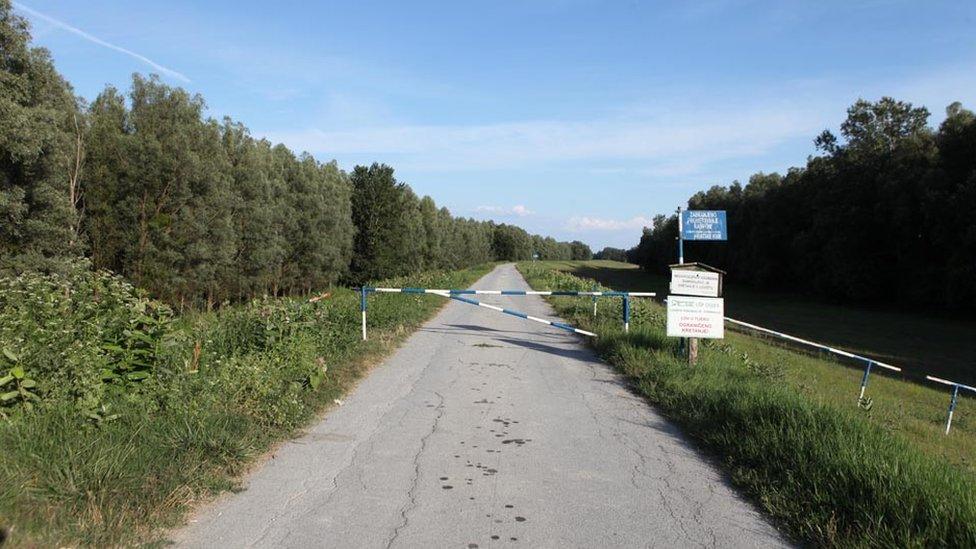
Liberland is located a short distance behind this fence
The court case was stranger. A Croatian higher court had overturned the original conviction and had sent it back down to the local magistrates' court for a retrial. But Jedlicka was actually hoping to "lose" the case again.
If Croatia was fining him for entering Liberland illegally, his argument went, then surely that was proof that there was an international border there, as he had always claimed? In effect, he was hoping a small Croatian magistrates' court would decide where the border between Serbia and Croatia lay.
To his disappointment, but nobody's surprise, the elderly magistrate felt that this was beyond his competence, and the case was adjourned.
And so we looked at boats. A lot of boats, in various states of decrepitude.
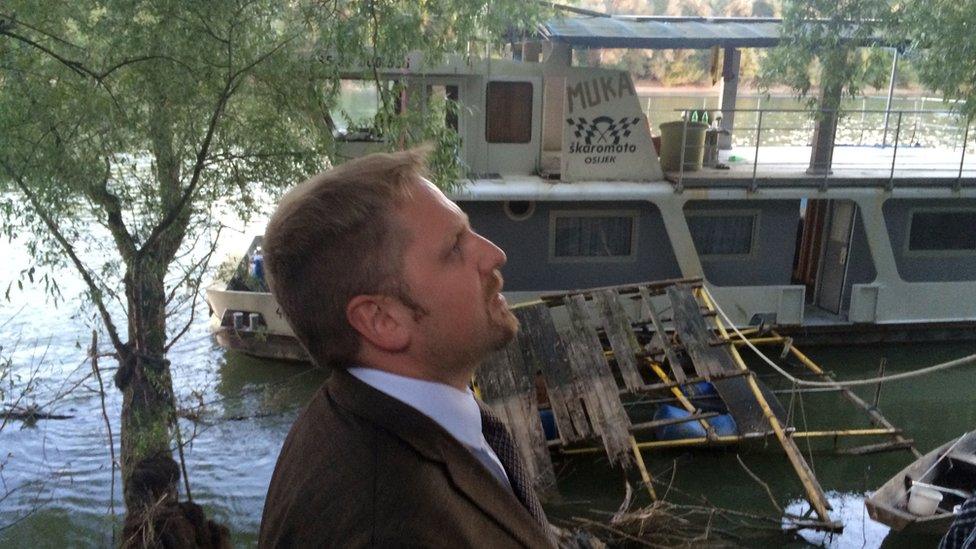
Jedlicka with the first of the Liberland fleet
Jedlicka's plan is that, if he can't yet settle on the semi-solid ground of Liberland, he can build a temporary settlement on houseboats on the Danube next to the territory. Other boats will serve as meeting places and diplomatic accommodation.
Acquiring property shows seriousness of intent, he thinks. "We want to show that we are real people who are able to do real stuff, but in a romantic way," he says.
Eventually he found the right vessel - a ramshackle fixer-upper, for which he agreed to pay 30,000 euros (£26,000).
All this time, we were accompanied by the foreign minister Jose Miguel Maschietto, a strikingly handsome 32-year-old, always impeccably dressed.
He's a Venetian, and so knows about boats. But something about him didn't quite add up.
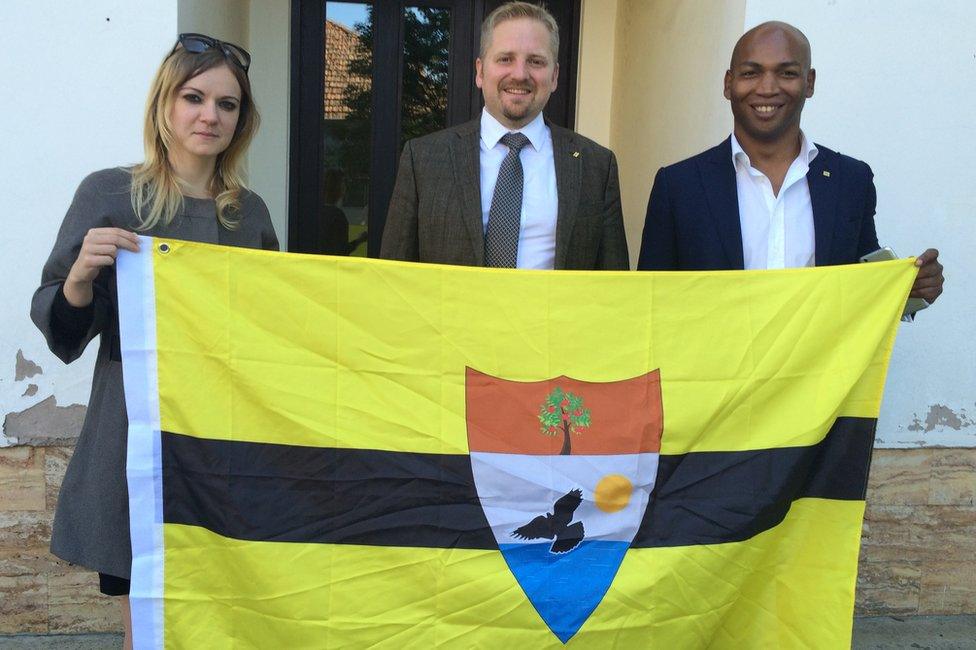
Vit Jedlicka (centre) holds a Liberland flag with former Liberland foreign minister Jose Miguel Maschietto (right) and his lawyer
He said he'd been a commander in the Italian army and served as a UN peacekeeper in Kosovo. But he wouldn't tell me when. He was always telling me things that turned out to be untrue, or inaccurate, or unlikely. He claimed to be in constant touch with his ambassadors, but then he got muddled about their names.
Back home, I did some digging - and found a whole another barely credible story.
Three years ago, Maschietto had claimed to be an internationally celebrated pianist and composer. He'd won an award for the soundtrack to the film Gravity. He was conductor of the state opera of Prague, guest conductor at the Paris National Opera and guest ballet conductor at the Bolshoi. His CV of awards and prestigious official positions ran to several pages.
This musical prodigy had given interviews to the Italian and Czech press and media. And because he was of Ecuadorian heritage - he had been adopted by an Italian family as a child - he had been lionised by the Ecuadorian ambassador to Germany, who wanted to appoint him an honorary consul in Prague. There was going to be a film made of his amazing life.
The trouble was, it was all untrue.

Find out more
You can hear Jolyon Jenkins's documentary on Liberland on Out of the Ordinary on BBC Radio 4, Monday 14 November at 20:00 GMT, or listen again on iPlayer.

None of the institutions he claimed to have worked with had any record of him. His piano playing was mediocre at best. He had got an engagement to conduct an orchestra in Venice but, the orchestral manager told me, the players rebelled after half an hour and he was replaced.
The work of exposing the hoax fell to a group of Ecuadorian expatriates in German and Prague, including a genuinely distinguished Ecuadorian musician, Boris Cepeda, who had never heard of Maschietto.
Eventually, the Ecuadorian government admitted it had been duped, and withdrew the honorary consulship. Maschietto went to ground, only resurfacing this year as Liberland foreign minister, and altering his name, presumably to avoid detection.
I told Jedlicka of his foreign minister's rich fantasy life. He was shocked and surprised. Maschietto resigned.
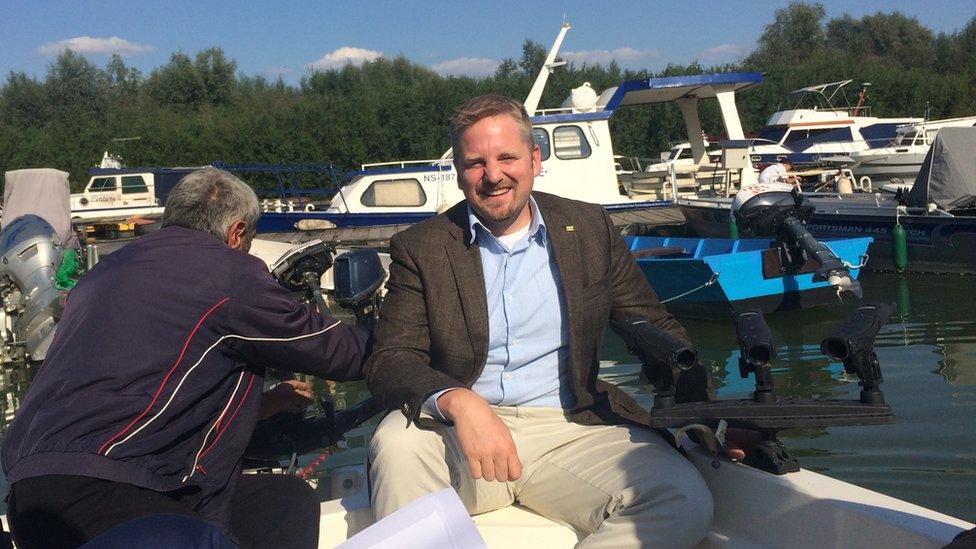
Vit Jedlicka in the Danube with Serbia behind him
The president wrote to me: "I'm still doing my best to choose the best people for the team and lately I was not very lucky. I hope to be able to get better people on board soon. Maybe you would be interested in working for our intelligence services?"
As many nation-builders through history have discovered, it's your friends as much as your enemies you need to keep an eye on.
Unlike his ex-foreign minister, Vit Jedlicka isn't trying to fool anyone. But both men are pursuing fantasies.
If Croatia and Serbia ever sort out their border disagreement, there will be no little piece of land left over to build a libertarian heaven on earth.
But then, as Vit Jedlicka is fond of saying, all countries are fantasies. They're all in your head.

More from the Magazine
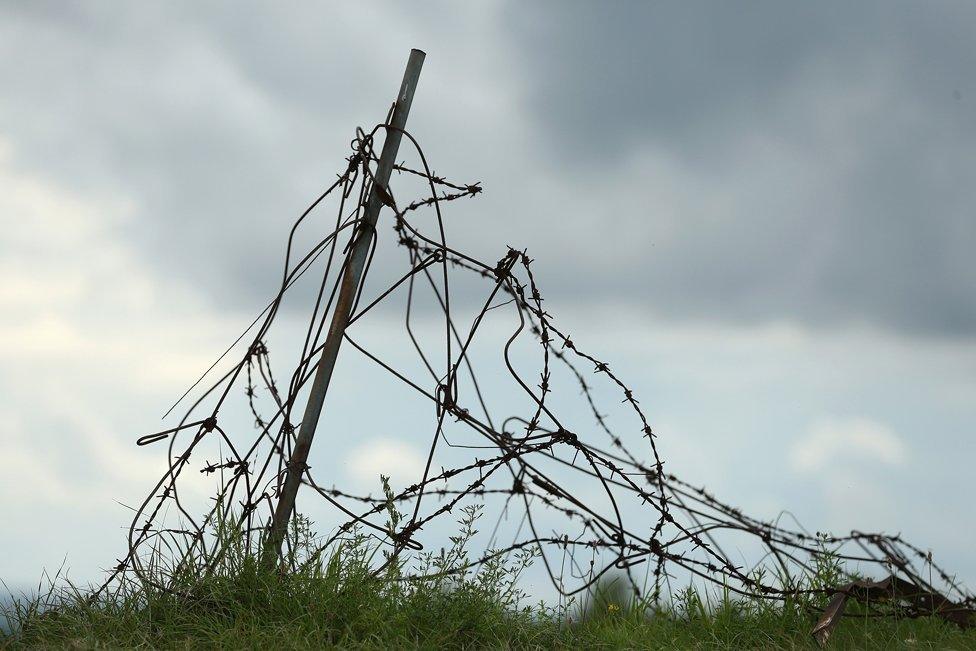
What exactly is No Man's Land? It may be the space on a battlefield between two opposing front lines, a buffer zone between two countries or a parcel of land unclaimed and ungoverned by local authorities. The notion has never been fully defined so two men are travelling across Europe to a puzzling area on the Egypt-Sudan border in order to understand it better.

Join the conversation - find us on Facebook, external, Instagram, external, Snapchat , externaland Twitter, external.